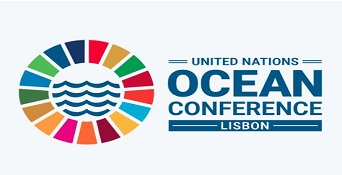Context
Recently, all 198 members of the United Nations unanimously adopted July 1, 2022 the Lisbon Declaration on ocean conservation.
Background
- The Lisbon Treaty started as a constitutional project at the end of 2001 (European Council declaration on the future of the European Union, or Laeken declaration).
- It was followed up in 2002 and 2003 by the European Convention which drafted the Treaty establishing a Constitution for Europe (Constitutional Treaty).
- The process leading to the Lisbon Treaty is a result of the negative outcome of two referendums on the Constitutional Treaty in May and June 2005, in response to which the European Council decided to have a two-year ‘period of reflection’.
- Finally, on the basis of the Berlin declaration of March 2007, the European Council of 21 to 23 June 2007 adopted a detailed mandate for a subsequent Intergovernmental Conference (IGC), under the Portuguese presidency.
- The IGC concluded its work in October 2007.
- The Treaty was signed at the European Council of Lisbon on 13 December 2007 and has been ratified by all Member States.
- It sends a strong signal to urgently improve the health, sustainable use and resilience of the ocean.
- It was recognised that developing countries, particularly small island developing states and least developed countries, need assistance with capacity building.

Objectives
- It aims to follow science-based and innovative actions on an urgent basis.
- It aims to protect at least 30% of national maritime zones by 2030.
- It aims to achieve carbon neutrality by 2040.
- Allocating funds to research on ocean acidification, climate resilience and surveillance.
- Scale-up Science-based and innovative actions to address ocean emergency
- Support implementation of SDG14 (life below water) by empowering women and girls- recognising their participation is crucial to building a sustainable ocean-based economy
- Protect biodiversity in Areas Beyond National Jurisdiction, which lie outside the 200-mile (322-kilometer) exclusive economic zones of countries.
- Participants at the conference also agreed to work on preventing, reducing and controlling marine pollution. It includes:
- Nutrient pollution
- Untreated wastewater
- Solid waste discharges
- Hazardous substances
- Emissions from the maritime sector, including shipping, shipwrecks
- Anthropogenic underwater noise
India initiatives
- India will take up the Coastal clean sea campaign (‘Swachh Sagar, Surakshit Sagar’.)
- Ban on single-use plastics.
Significance
- Sustainable ocean-based economies: developing and promoting innovative financing solutions to help create sustainable ocean-based economies as well as expanding nature-based solutions to help conserve and preserve coastal communities.
- Restoring harmony with nature through a healthy, productive, sustainable and resilient ocean is critical for our planet, our lives and our future.
